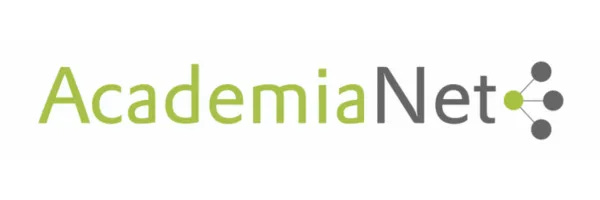Ask Women – on Genocide
Change the narrative with the women experts from the European databases of the ENWE network.
Dear reader,
Welcome to the November issue of our Ask Women newsletter, brought to you by the European Network for Women Excellence (ENWE) in collaboration with the women experts’ databases in our network: 100esperte, AcademiaNet, Agenda d’Expertes, Expertalia, and Les Expertes.
📣 REMINDER 📣
This Friday, November 22, ENWE is heading to Florence, Italy, for the event Dove sono le donne? Sottorappresentazione femminile nei media: deontologia e buone pratiche per un cambiamento (Where are the women? Female underrepresentation in the media: ethics and best practices for change), addressing the challenges of female underrepresentation in media.
All spots are now taken, but follow us on social media to stay updated on future announcements:
LinkedIn | Facebook| Instagram
This Edition’s Theme:
International Day of Commemoration and Dignity of the Victims of the Crime of Genocide and of the Prevention of this Crime (9 December)

The International Day of Commemoration and Dignity of the Victims of the Crime of Genocide and the Prevention of this Crime, observed on December 9, was established by the United Nations to honor genocide victims and reaffirm a global commitment to prevent such atrocities. December 9, also marks the anniversary of the 1948 Genocide Convention, the first international human rights treaty defining genocide and committing States to prevent and punish this crime.
The Convention defines genocide – a crime under international law, whether in peacetime or wartime – as acts committed with intent to destroy, in whole or in part, a national, ethnic, racial, or religious group. These acts include killing, causing bodily or mental harm, inflicting conditions designed to destroy, preventing births, and forcibly transferring children.
This day aims to raise awareness, educate, and promote accountability, reinforcing the Convention’s “never again” pledge. Recognizing that genocide often arises from identity-based conflicts fueled by discrimination, hate speech, and human rights abuses, the UN stresses the importance of addressing these root causes to uphold human dignity and foster peace.
Meet the experts
Below, you’ll find the profiles and contacts of women experts in various fields available for interviews, panel discussions, events, and other opportunities.
If you haven't subscribed to our newsletter yet, now is the perfect time! By clicking on the link below, you can join our ever-growing community.
Please note:
you may have to change the language setting to ENG at the top right of the 100esperte website to view the profiles in English language.
ANNALISA CIAMPI
Full Professor of International Law at Verona University – currently on leave for assignment as Expert of Human Rights and Fundamental Freedoms at the Permanent Representation of Italy to the UN and International Organisations in Geneva – and a Visiting Professor of Human Rights at Monash University. An Attorney and member of the Italian Bars, and a CEDR accredited Mediator, she has served in various international roles. Her research focuses on human rights, international criminal law and dispute settlement and EU law.PAOLA GAETA
Professor of International Law at the Geneva Graduate Institute and Director of the Geneva Academy of International Humanitarian Law and Human Rights (2010–2014; 2024 -current). She serves on the Board of the Journal of International Criminal Justice. Her research focuses on international criminal law, especially in relation to public international law, human rights, and humanitarian law. In July 2024, she delivered a specialized course on The dual responsibility of the State and of the Individual for Genocide at the Hague Academy of International Law.
Contact nowDANIELA IRRERA
Professor of Political Science and International Relations at CASD - School of Advanced Defence Studies, Rome, and Professor of Political Violence, Terrorism, Sustainability, and Civil Society at OSCE Academy, Bishkek. Her research explores non-state actors in global politics, examining the roles of civil society, NGOs, criminals, and terrorists. She is Chair of the European Consortium for Political Research (ECPR).
Contact nowMARINA LALATTA COSTERBOSA
Professor of Philosophy of Law in the Department of Philosophy and was Member of the Bioethics Committee at the University of Bologna. Her research emphasizes normative and conceptual dimensions in ethics and law, with a focus on torture, violence against children, and themes such as children's rights, moral responsibility, and consent to evil, especially in the context of Nazism.
Contact now
ELISABETH ANSTETT
Dr. Elisabeth Anstett is a social anthropologist, senior tenured researcher at CNRS and member of Adès (Anthropologie bio-culturelle, Droit, Ethique et Santé) at Aix-Marseille University. Her research focuses on human remains research and recovery in post-mass violence or crisis contexts, and deals with issues such as concealment of dead bodies or unclaimed bodies/body parts, especially in eastern Europe countries.
Contact nowELIES VAN SLIEDREGT
Elies van Sliedregt is Professor of Law at Tiblberg in the Netherlands. She studies comparative and international criminal law with a focus on international crimes (war crimes, terrorism, crimes against humanity, genocide), international criminal courts and tribunals as well as criminal responsibility.
Contact nowCHRISTINA SPÄTI
Prof. Christina Späti is Professor for Contemporary History at the University of Fribourg. She is particularly interested in the study of the holocaust and national socialism, the aftermath of the holocaust, Anti-Zionism and anti-Semitism.
Contact now
MAITE ALEMANY
Associate Professor of International Law and International Criminal Law, also serving as an equality advisor with the Podemos-Podem group at the Valencian Courts. Extensive experience in international cooperation, women's human rights, and gender violence, with over 20 years working on projects in Honduras, El Salvador, Bolivia, and Panama for various international organizations.
Contact now
ELENA MUT MONTALVA
PhD in Gender Studies from the University of Valencia, where she also earned degrees in Sociology and Social Work. Professor in the Department of Social Work at the University of Valencia, teaching and researching in gender and equality, and international development. Expert in women’s rights and migrant issues, with extensive experience in managing gender-focused programs for migrants and refugees internationally.
Contact now
CARINE THIBAUT
Carine Thibaut is director of the French-speaking Belgian section of Amnesty International. She has in-depth expertise in human rights, particularly women's rights, migrants' rights and the right to protest. War crimes and genocide are an integral part of her expertise.
Contact now
ENWE is committed to fostering dialogue, promoting diversity, and amplifying the voices of women experts across Europe. With Ask Women, we aim to showcase the incredible achievements and insights of these talented professionals, helping to bridge the gender gap in the media and beyond.
Thank you for reading and supporting our project!






